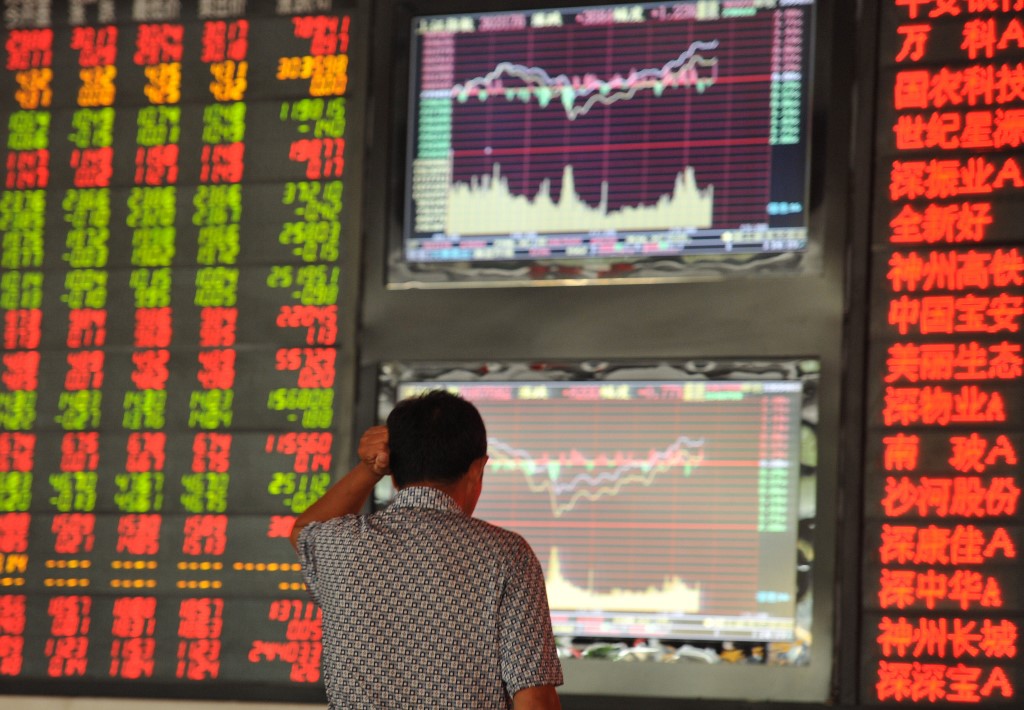China, the world’s second-largest economy, has left investors divided in recent weeks. The recent stimulus announcement by the Chinese government sparked a wave of euphoria in the markets, followed by swift disillusionment. The initial enthusiasm faded when it became clear that the measures did not meet the expectations of many investors. The result? A widespread collapse in the markets, leaving experts wondering whether it is really worth betting on the Asian giant at this time.
The stimulus that promised much… but delivered little
On September 24, the Chinese government launched an ambitious package of measures to revive an economy hit by deflation and the real estate crisis. The promise of lowering interest rates, injecting liquidity and supporting consumption excited investors. In just a few days, the CSI 300 index, which groups the main stocks in China, rose by 24%, in what became the biggest rally since 2008. Even at the opening of the week after the Golden Week break, the index shot up by 11%.
But that joy was short-lived. At the close of trading, the CSI 300 ended up just 6%, while Hong Kong stocks plunged 9%. What happened? The Chinese government, instead of announcing the long-awaited “big bazooka” of $500 billion in stimulus, opted for a more moderate approach. Despite officials’ assurances that they would meet their 5% economic growth target for this year, there were no additional cash injections, disappointing those hoping for more immediate action. Instead, there was talk of exploring Local Government Special Bonds to fund public projects.
The dead weight that drags China down
The lack of a concrete plan has meant that China remains a liability for many investors. The country’s economy has shown no signs of a robust recovery for years, largely due to the collapse of its property market. This highly indebted and imploding sector has severely affected the confidence of property owners and consumers.
China has also been battling deflation, a general decline in prices, for some time. Since the second quarter of 2023, the GDP deflator shows a steady decline in the prices of goods and services, and this trend is expected to continue into next year unless further stimulus is implemented. This context has dampened investor interest, who see few signs of a sustained rebound.
When China sneezes, the world catches a cold
The plunge in Chinese stock markets was not limited to Asia. European luxury giants such as LVMH and Kering (owner of Gucci) fell by between 4% and 7%, due to failed expectations of increased consumption in China. Shares in major mining companies such as Rio Tinto and BHP were also affected, with falls of 5%, due to the expected decline in demand for metals such as copper and iron, which are essential for economic growth. Clearly, what happens in China not only impacts local markets, but also reverberates through the portfolios of investors around the world.
Caution among the big players
Despite the recent September rally in Chinese stocks, major investment firms remain cautious, and so far, the warnings have come true. Invesco, JP Morgan and Nomura Holdings have all warned about the risk of investing in China at this time. Invesco, for example, is sceptical about the valuations of some Chinese stocks, which have risen by 30% to 40%, suggesting they may be overvalued.
Nomura, for its part, has compared the recent surge in Chinese stocks to the 2015 rally, when a sudden surge was followed by a precipitous crash. “A stock market frenzy could be followed by a brutal fall,” warned Nomura analysts, who see a greater likelihood of Chinese stocks falling back to low levels, rather than continuing to rise.
JPMorgan has also been cautious, saying that while the stimulus plan is a positive step, additional measures are still needed to restore economic confidence. The strength of China’s growth remains an unknown, and foreign investors are taking a «wait-and-see» approach.
So is this the time to invest?
The big question remains: is now the right time to invest in China? While the stock market rally was impressive, the subsequent disappointment has also been on par, prompting analysts to proceed with caution. The long-term recovery of the Chinese economy depends not only on more stimulus, but on structural reforms that can stabilise key sectors such as real estate and restore consumer confidence.
With the constant threat of deflation, rising geopolitical tensions and economic uncertainty, many investors are choosing to wait for the picture to become clearer before betting big on China again. The recent rally may have been tempting, but as big banks warn, caution may be the best strategy.
Patience, after all, may be the greatest virtue in times of uncertainty.

